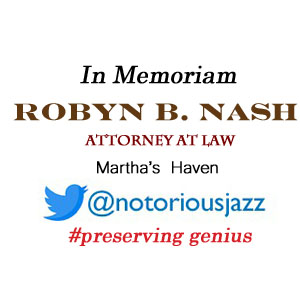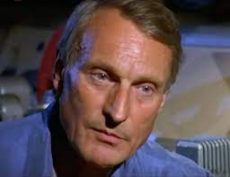
Three Wishes
Francis Paudras replied to the query of three wishes by the Baroness with:
- “To ‘ave ze Beatles naked on ze stage on all fours, cut zeir ‘air, and zen close zem up, and force zem to listen to ze works of Monk, twenty-four hours on twenty-four!”
- “Zat ze world of music take conscience of ze importance, ze true place of Bud Powell in music, not just jazz.”
- “I would like for jazz coming ze ambassador for peace in ze world.”
*Excerpt from Three Wishes: An Intimate Look at Jazz Greats ~ Compiled and Photographed by Pannonica de Koenigswarter
More Posts: baroness,history,instrumental,jazz,music,pannonica,piano,three,wishes,writer
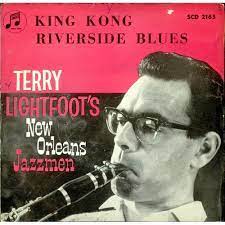
Daily Dose Of Jazz…
Terence Lightfoot was born on May 21, 1935 in Potters Bar, Middlesex, England. He started his musical career as a vocalist during early school life, singing popular songs with a small amateur variety group. In 1949, he came to jazz while at Enfield Grammar School in Enfield Town, London, England. He changed from playing the trumpet to clarinet to meet the needs of the traditional Dixieland jazz band of his friends. After leaving school, he formed his first jazz band, the Wood Green Stompers.
In 1955 he formed the band Terry Lightfoot’s New Orleans Jazzmen. In the Sixties they had three minor hits in the UK Singles Chart in 1961 and 1962, True Love, King Kong and Tavern in the Town. The group made regular Sunday night appearances at the Wood Green Jazz Club.
Clarinetist Terence Lightfoot transitioned from prostate cancer in Milton Keynes General Hospital on March 15, 2013 at the age of 77.
More Posts: bandleader,clarinet,history,instrumental,jazz,music
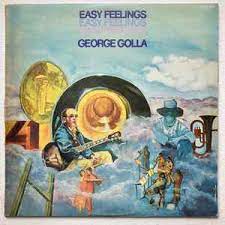
Daily Dose Of Jazz…
George Golla was born May 10, 1935 in Chorzów, Poland. He emigrated to Australia in the 1950s and began working in Sydney from 1957. Two years later he commenced a long-term musical partnership with the clarinetist, flautist and saxophonist Don Burrows that continued for nearly forty years.
Recording frequently in duo, quartets and other combinations, they nurtured and featured many young talents, including brassman and multi-instrumentalist James Morrison, guitarist Guy Strazzullo, drummer David Jones and others.
As educators they taught at the New South Wales Conservatorium and Golla was a teacher at the Academy of Guitar in Bondi alongside Don Andrews. He specialized in jazz and classical guitar and has written several books on theory, scales and the modes.
George toured frequently throughout Australia, playing on-call with international artists such as vibraphonist Gary Burton in the early 1970s. He has had a long association with Luis Bonfa and other Brazilian musicians. He has made hundreds of recordings, including The Don Burrows Quartet at the Sydney Opera House, Cherry Pie 1017 & 1032, and Steph’n’Us, with Stephane Grappelli during a tour with Grappelli and Burrows.
Guitarist George Golla, at 85, continues to perform in and around Sydney with flugelhorn player and singer songwriter Elizabeth Geyer, and tours interstate and internationally, records and conducts workshops.
More Posts: bandleader,guitar,history,instrumental,jazz,music
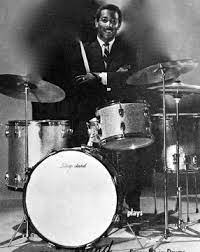
Three Wishes
The night Oliver Jackson gave up his three wishes he was caught off guard, however, to the Baroness he replied:
- That’s a hell of a question! Well, I think the first thing would be… It may sound corny, but, compatibility of all people in the world.”
- “Then I have got to go to my own self – to my health.”
- “And then I’d have to say spontaneous music! I think that’s be everything. I’d started to put some money in there – I never have enough of that – but a lot of people have money and still don’t have what they really want..”
*Excerpt from Three Wishes: An Intimate Look at Jazz Greats ~ Compiled and Photographed by Pannonica de Koenigswarter
More Posts: baroness,drums,history,instrumental,jazz,music,pannonica,three,wishes

Daily Dose Of Jazz…
Oliver Jackson was born in Detroit, Michigan on April 28, 1933. He played in the 1940s with Thad Jones, Tommy Flanagan, Wardell Gray, and had a variety show with Eddie Locke called Bop & Locke. After working with Yusef Lateef from 1954 until 1956, he moved to New York City, where he played regularly at the Metropole in 1957 and 1958.
Following his stint at the club he worked with Teddy Wilson, Charlie Shavers, Buck Clayton, Benny Goodman, Lionel Hampton, Kenny Burrell, Earl Hines and the JPJ Quartet with Budd Johnson through the Sixties.
Later in life he played with Sy Oliver from 1975 to 1980, Oscar Peterson, and then George Wein’s Newport All-Stars. As a bandleader, Jackson led a 1961 date in Switzerland, and recorded at least five albums for Black & Blue Records between 1977 and 1984.
His brother and bassist Ali Jackson performed with him both at the beginning and towards the end of their careers. Drummer Oliver Jackson, who was also known as Bops Junior, transitioned from a heart failure on May 29, 1994 in New York City at the age of 61.
More Posts: bandleader,drums,history,instrumental,jazz,music




